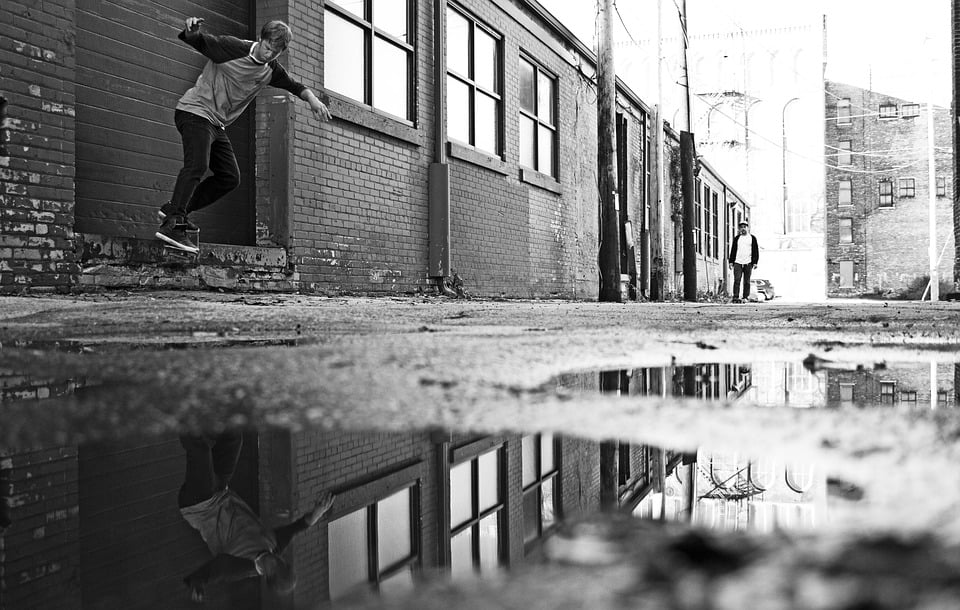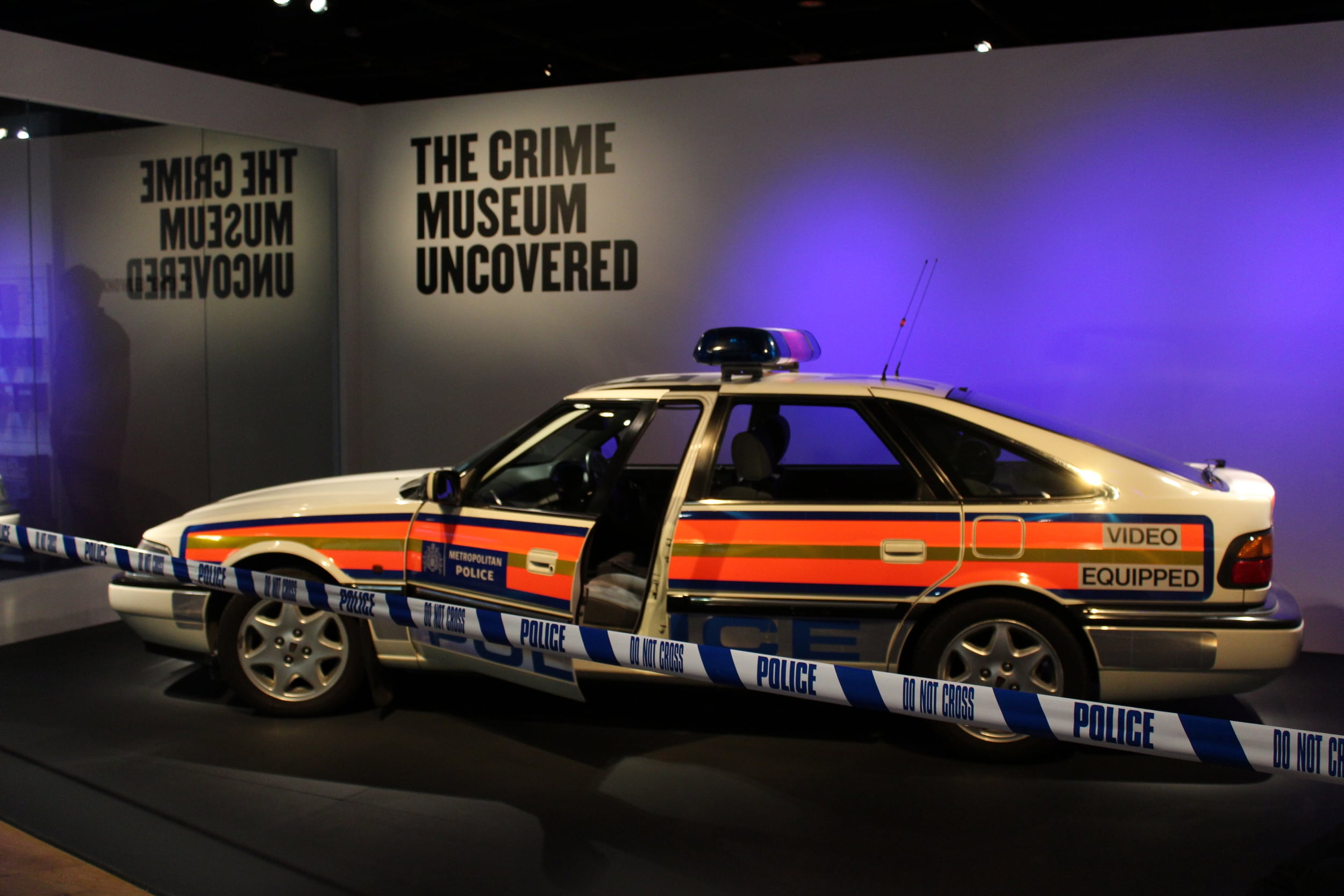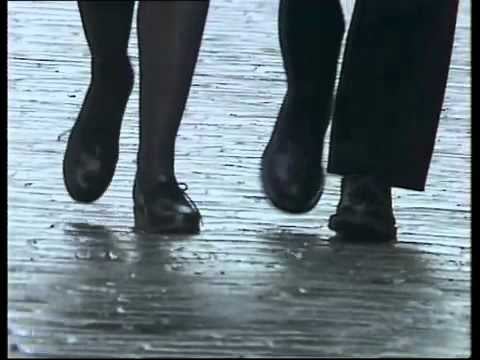CRIME FICTION VERSUS CRIME FACT
As a former detective, I want my fiction to be as true to life as it can be. But I also want to be entertained, because in real life, investigating crime is rarely very glamorous at all. It’s often very tedious, extremely time consuming and in some cases takes many years to crack. And who wants to read about boredom, overtime rates, child-care problems and yet another stolen sat nav?
Research, research, research
Once I settle into a story, I don’t want to be distracted from the plot by errors. An author of historical fiction wouldn’t write about an Anglo-Saxon wearing a digital watch or eating chips before potatoes were even introduced to Europe. The same should be true of crime fiction. A bobby should be of the correct rank, wear the right hat, speak into the right radio and have the right ‘jam sandwich’ stripes down the side of their car. Detective Chief Inspectors don't visit the crime scene. I don't think I've ever seen one out of the office, let alone digging up a body!
Starting out in the police means learning your trade. You deal with with high volume crimes such as handbags nicked from the floor of busy pubs, phones pick-pocketed from people on the bus and neighbour disputes about parking spaces. You cannot progress to a higher rank in the force without putting in years of hard graft. You also cannot become the lead on a case by being a freelance art dealer or insurance consultant who is drafted in from the outside – although we all enjoy the escapism in imagining if that were us!
It’s true that we do use expert opinions from external specialists. For example, I worked on a case where the evidence included 250 documents containing 250 different signatures and 250 different addresses. An external handwriting expert was able to analyse the script and tell us that there were actually only five authors in total. So rather than actually solving the case, that narrowed it down substantially. External experts may well change the course of the investigation.
The Crime Scene
Far from being the fascinating places that they often appear in fiction, crime scenes are very unpleasant and are not some form of canvas on which the criminal has deliberately painted. The scene won’t give you the emotions or the motives behind the crime. We are looking instead for fingerprints, DNA, footprints – things that have been left accidentally by the criminal.
Believe it or not – there’s very little blood at the scene of the average murder. When someone is attacked and dies, the injury will have been serious enough for the heart to stop beating pretty quickly. Blood ceases being pumped out of the body. If a weapon like a knife or gun has been used, any damage is often internal and the vast majority of the bleeding will be internal too.
In contrast, GBH (Grievous Bodily Harm) scenes are far worse. At the two bloodiest crime scenes I’ve attended in my career – the victims both lived. Both of their hearts kept pumping large amounts of fresh, oxygenated, bright-red blood out of their bodies. As a police officer you see much more gore when someone receives a horrendous wound to their head or hand, and then survives, than that associated with a murder victim.
Motivation, emotions and feelings
Anyone can look at a photo of a dead child and describe it. That’s easy. A good writer will also be able to describe what the emotions may feel like at the time. But how many writers could describe how it feels to see a dead child in front of them whilst standing alongside parents who had let their baby die through the stupidity of their own actions? How many could describe what that feels like?
The act of cold-blooded murder isn’t that fascinating to me. The motivation behind a crime is much more interesting. A criminal investigator is immersed in a dark, dingy world where raw emotion is never far away. The writer who can capture that, and get behind the motives for the killer’s deeds – those are the books I want to read.
Who gets it right?
Crime fiction works when the creators do their research. Ian Rankin gets it nearly 100% spot on and I like Patricia Cornwell, she writes well. (Although Kay Scarpetta does seem to be overly brilliant at everything – from making home-made pasta to cracking the most unsolvable of police cases!)
The lengths that Peter James goes to for his art are also impressive. He regularly spends time with the police - in a patrol car, in the office or out at the scene. That's the sort of dedication that makes for expert realism.
The Bill, the British police procedural television series that was broadcast by ITV for almost twenty-seven years up until 2010, was a prime example of how important thorough research is to recreate real-life.
They’d call up and ask, ‘In this episode, we’ve got a police officer sitting at a computer screen looking for some information on a car theft ring. How does it work?”
I’d explain about our criminal intelligence system (CRIMINT) and what the computer’s monitor screen would look like so they could mock up an identical one. It was all about making it as real as possible for the viewers – many of whom were police officers themselves. Now that is what I call real attention to detail.
You never stop learning
Even though I’m a former officer, I still had to undertake research for my own police novel – and that’s despite it being based on a case I worked on for five years. I hope my reader will learn about how a major police investigation works with as much precision as I’m able to give. But first and foremost, I hope they will enjoy a twisty thriller that entertains them – because however accurate your research, you must always spin a tale that hooks people in.
The Theseus Paradox is available now in paperback or for Kindle from Amazon here.
DAVID VIDECETTE is a former Scotland Yard investigator who specialises in terrorism and organised crime. As a Metropolitan Police Detective he worked on a wealth of infamous cases and was a lead investigator in the London 7/7 bombings in 2005. His new thriller supports the work of the Police Dependants’ Trust.
This blog originally appeared as a guest post at Linda's Book Bag, here.
















